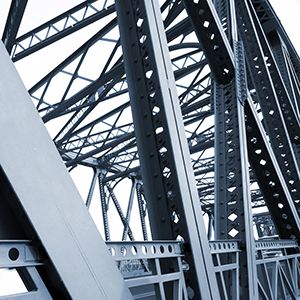Who is Liable to Pay when Circumstances for Construction Change?
Construction has been one of the most dynamic industrial sectors in the Middle East due to the increase in need of palatial residential and office spaces that arise from the surfeit of expatriates that flock into the region every year. Therefore, construction contractors and building owners often find it necessary to support their colossal investments in the business with exhaustive and scrupulous contracts in order to eliminate any future uncertainties. However, parties frequently fail to comprehend the legal complications that are involved in these contracts due to the undeniable need to foresee the future conditions of the construction sites. Some say the best things in life happen unexpectedly, but what happens in peculiar cases where a construction site contract does not turn out to be entirely static? No party involved could have readily anticipated such a pleasant surprise!
 It doesn’t take a wise man to fathom that the desert locality of the UAE is subject to a huge international spotlight prevailing from construction specialists participating in mega-development projects throughout the country. It remains imperative for international practitioners to fully grasp the geotechnical problems and soil conditions of this region, which enables them to anticipate any unforeseen features of construction techniques by evaluating adverse physical conditions which may cause an imposition in the implementation of their construction plans.
It doesn’t take a wise man to fathom that the desert locality of the UAE is subject to a huge international spotlight prevailing from construction specialists participating in mega-development projects throughout the country. It remains imperative for international practitioners to fully grasp the geotechnical problems and soil conditions of this region, which enables them to anticipate any unforeseen features of construction techniques by evaluating adverse physical conditions which may cause an imposition in the implementation of their construction plans.
One may argue that the peculiarity of a construction contract in the UAE, at least to some extent, is that site conditions are not entirely static. Since site conditions may alternate, one might wonder about the status of the mutual obligations of the parties within the contract. This is where the unforeseen physical conditions clause comes into play and forms an imperative standard provision apparent in construction contracts in several mature jurisdictions. Since unforeseen physical conditions between two parties may result in steaming contested and exorbitant disputes, the manner in which the risk of encountering physical conditions is allocated serves as a vital step before the signing or tender of a contract. Under the UAE law, construction contracts are governed by the Commercial Transactions Law [i], Commercial Customs[ii], and the Civil Transactions Law[iii] (the Civil Code) – specifically provisions relating to the so-called Muqawala contracts. The notion of unforeseen physical changes under UAE contracts should thus be incorporated as part of the provisions of the UAE Civil Code that deals with construction works.
Putting the contractor to the test
Most standard forms of construction contracts contain a site investigation clause, which entails the experienced contractor to exercise due diligence in noticing sensibly foreseeable physical conditions and disclaiming any warranty about the unforeseen physical conditions encountered at the site. Unexpected physical circumstances commonly arise in two situations:
- Type I differing site condition - referred to as a prerequisite that materially differs from the requirements specified in the information about the job provided.
- Type II differing site condition –referred to as an unforeseen or unusual condition that materially differs from what is usually and generally encountered on the specific type of work in the particular locality.
The Dubai Municipality Conditions of Contract for Works of Civil Engineering Construction (the DMCC) places an imperative stance on the concept of foreseeability of physical conditions, and whether they were of such a nature that they could have been readily anticipated. Closely linked to the notion of foreseeability is the assessment of site information which can be derived through an examination of relevant documents and physical investigations as per the standard conditions.
Further, the DMCC has conferred the contractor with the duty to conduct a reasonable inspection of the site under the stipulated constraints of costs and time. Reasonableness in this context is envisaged by determining what a rational or well-skilled contractor in the same field of work would be able to discover under the given circumstances. However, the owner does not have any responsibility to share any information regarding the conditions of the site.
An Owner’s Claim
 Generally, the owner does not prefer the contractor bearing all of the risks of unforeseen physical conditions since this might invite the opportunity for the contractor to inflate his bid or include unforeseen events in his price to account for the probability of physical conditions that may not actually occur. The case, however, may arise if the contractor alleges that he was forced to, for instance, excavate addition rock due to unforeseen ground conditions.
Generally, the owner does not prefer the contractor bearing all of the risks of unforeseen physical conditions since this might invite the opportunity for the contractor to inflate his bid or include unforeseen events in his price to account for the probability of physical conditions that may not actually occur. The case, however, may arise if the contractor alleges that he was forced to, for instance, excavate addition rock due to unforeseen ground conditions.
Clause 11.1 of the DMCC provides that the contractor shall be deemed to have inspected and examined the site and its surroundings and to have satisfied himself as to the nature of, amongst other things, the subsurface conditions. This clause further provides that the contractor would be deemed to have obtained all necessary information as to all circumstances that may affect his tender. Therefore, the owner cannot be held liable for the contractor’s failure to get the information necessary to correctly calculate the applicable rates since the contract places the burden of investigation and pricing on the claimants. However, the contractor is relieved from bearing the burden of the risk, when the risk:-
i. arises due to the fault or responsibility of the owner, in which case the “prevention principle” will usually inhibit the owner from insisting on adhering to time or budget that he has disrupted; or
ii. was not anticipated by either party (such as force majeure or imprevision)
An Act of God
Article 273 of the UAE Civil Code provides that in contracts which bind both parties if force majeure were to supervene, allocating the performance of the contract impossible, the corresponding obligation would cease, and the contract would automatically be canceled. Moreover, in the case of partial impossibility, the impossible aspect of the contract would be extinguished. The same is applicable for the case of temporary impossibility in continuing contracts where, in both cases, it shall be permissible for the obligor to cancel the contract provided that it is done so in the light of the obligee’s attention. In this regard, the Dubai Court of Cassation examined the impact of the force majeure event on the obligations of the parties and held that the event must be of such a nature that its consequences are incapable of being prevented, thus rendering performance of the obligation impossible in its entirety. The Court of Cassation also declared that the party seeking the benefit of force majeure doctrine should not have contributed to its occurrence. [iv]
The concept of imprevision has been recognized under Article 249 of the UAE Civil Code as an emergency circumstance. Imprevision is based on the notion of rebus sic standibus, which limits the sanctity of a contract (pacta sunt servanda) when there is a change of circumstances. It provides that if exceptional circumstances of a public unforeseen nature occur as a result of which performance of the contractual obligation, even if not impossible, becomes oppressive for the obligor, it would be permissible for the judge to reduce the oppressive obligation to a legitimate level if justice so requires. Any agreement to the contrary will be rendered void.
 The Dubai Court of Cassation further held that the concept of imprevision applies to any performance in a contract that has not been completed by the time of the occurrence of the supervening event.[v] In another example, the Dubai Court of Cassation held that imprevision is applicable not only to fixed-term contracts but also to any contract in which the related performance has been suspended due to an emergency event. It is left to the discretion of the judge to balance the burdensome obligations to a reasonable extent.[vi]
The Dubai Court of Cassation further held that the concept of imprevision applies to any performance in a contract that has not been completed by the time of the occurrence of the supervening event.[v] In another example, the Dubai Court of Cassation held that imprevision is applicable not only to fixed-term contracts but also to any contract in which the related performance has been suspended due to an emergency event. It is left to the discretion of the judge to balance the burdensome obligations to a reasonable extent.[vi]
Usually, in construction contracts, the employer has no duty to provide the contractor with information concerning known or expected site conditions. However, what happens in the case where the owner willingly holds back or conceals information relating to site conditions which differ from those originally stipulated at the time of execution of the contract? The position in the UAE with regard to misrepresentation is addressed under Article 185 of the UAE Civil Code, which defines misrepresentation as when one of the two contracting parties deceive the other through fraudulent means by actions or words resulting in the other consenting to what he would have otherwise not consented to. The UAE legislation construes misrepresentation and gross unfairness conjunctively, rather than separately. The Dubai Court of Cassation reinforced this rule and held that in order to assess gross unfairness, it should emerge as a result of an extreme imbalance between the actual value of the agreement subject and the price paid for it by the buyer.[vii]
Dusty Announcements
Each differing site conditions clause requires the contractor to give the owner notice of the claim before
the condition is disturbed, regardless of whether it is a type 1 or type 2 differing site condition, each differing site conditions clause requires the contractor to give the owner notice of the claim before the condition is disturbed. That, in turn, enables the owner to determine whether a differing site condition exists and, if so, how to handle such a condition.
In a standard formatted construction contract, the contractor is required to promptly submit a notice within a specified number of days in the event of unexpected physical conditions which might cause any obstruction in the execution of the work. Ultimately, the discovery of such obstruction is likely to result in a claim for an extension of time and/or additional cost. Failure to do so may prevent the contractor from conducting future claims and may even expose him to a claim for liquidated damages.
Clause 12.3 of the DMCC provides that the contractor shall specify the exact nature of the physical obstructions of physical conditions encountered in any notice given under Sub-Clause 12.2. The contractor shall also with the notice or as soon as possible thereafter, give:
i. details of the anticipated effects thereof
ii. the measures he is taking or proposing to take, and;
iii. the extent of the anticipated delay in or interference with the execution of the works.
With regards to the notice to be given to the contractor, Clause 68.1 further states that all certificates, notices or instructions to be given to the contractor by the employer or the engineer under the terms of the contract shall be sent by post, cable, telex or facsimile transmission or must be left at the contractor‘s principal place of business or such other address as the contractor shall nominate for the purpose. The contractor shall, within 7 days of the acceptance of his tender by the employer, notify the employer and the engineer of the registered address of his office in Dubai to which he may require notices to be served. Clause 68.2 further highlights the conditions of rendering a notice to employer and engineer and further states that any notice to be given to the employer or to the engineer under the terms of the contract shall be served by delivering the same to the respective addresses nominated for as per the relevant conditions.
Conclusion
Most importantly, and as far as possible, the pillar of good faith creates an obligation upon parties to cooperate in achieving a sense of contractual objectives on standards of integrity and honesty in conduct. Article 246 of the Civil Code stated in this regard that a contract must be in a manner consistent with good faith. In addition, it stipulates that the contractor's commitment is not limited to what is stated in the contract, but also includes all other requirements according to the law and custom, and the nature of the act. The Dubai Court of Cassation confirmed the above and further stipulated that in the case of any delay in execution, the court has the right to determine whether or not the delay would serve as a valid means for termination depending on the facts of the matter. The court may further make use of an expert report in determining the same.[viii] While the success of a differing site conditions claim may greatly rely on specific facts and prevailing circumstances, by carefully stipulating a bid review and site inspection upfront and providing timely notice in compliance with the contract, both parties will be best positioned to successfully navigate the challenging circumstance that may arise in an altered condition. Therefore, construction contractors and owners should always take bay at the shade of the bespoke legal advice provided by a law firm that specializes in the sector in order to eliminate any ambiguity that might arise in regard to construction contracts.
[i] Federal Law no. 18 of 1993
[ii] Common Customs Law of the GCC States
[iii] Federal Law No. (5) of 1985
[iv] Case 268/2009 -290(215) dated 15 November 2009
[v] 71 Dubai Court of Cassation 346/2009: 7 February 2010
[vi] Dubai Court of Cassation Civil 346/2009: 7 February 2010
[vii] Dubai Court of Cassation petition No. 201/2004–15/01/2005.
[viii] The Court of Cassation appeal No. 2011/119 -18-09-2011.
 English
English
 عربي
عربي Русский
Русский 官话
官话 português
português
 Türk
Türk 






